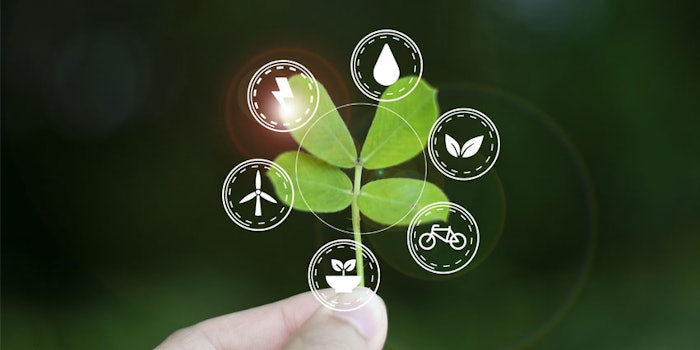
In early May, LanzaTech and BASF announced a partnership with the launch of n-octanol to create the fragrance found in perfume and the flavors found in food from industrial waste. Perfumer & Flavorist+ connected with Freya Burton, chief sustainability officer and people officer at LanzaTech, to get the details on the collaboration.
Related: LanzaTech x BASF to Create Fragrance and Flavor from Industrial Waste
![Perfumer & Flavorist+ [P&F+]: How long has this partnership been in the works? How long did this project take from inception to enaction?](https://img.perfumerflavorist.com/files/base/allured/all/image/2021/06/gci.Freya-Burton-270x270.png?auto=format%2Ccompress&fit=max&q=70&w=400) Perfumer & Flavorist+ [P&F+]: How long has this partnership been in the works? How long did this project take from inception to enaction?
Perfumer & Flavorist+ [P&F+]: How long has this partnership been in the works? How long did this project take from inception to enaction?Freya Burton [FB]: LanzaTech has a long-standing relationship with BASF, indeed BASF invested as a shareholder in LanzaTech in 2018. This project was under discussion before being formalized via a joint development agreement between the two companies in late 2020.
P&F+: Could you touch on how this collaboration speaks to new sustainability and eco-friendly practices in the industry?
FB: Our partnership with BASF is the perfect example of how companies rethink their manufacturing process by embracing the circular economy. We see a future where agricultural cultivation is reserved for food wherever possible. Other raw materials such as ethanol, plastic for packaging materials and surfactants are made directly from waste carbon. We now have the technology to recycle carbon for a second use rather than drawing new fossil resources from the ground. This approach helps create a carbon smart economy where a consumer will choose to purchase goods or services where the carbon has been made through recycling waste emissions, improving local air quality and increasing the sustainability of the things we buy. At the same, we know we are making a real, measurable positive impact. This also reflects a desire by the industry to look at sustainable and holistic land use, biodiversity, water use and carbon emissions that all play a part in determining what feedstocks to use.
Check out what else is new in the F&F industry with our most recent podcast!
P&F+: Could you explain the gas fermentation technology? Is this something we’ll see being used more by F&F companies? Why or why not?
FB: Industrial activity generates waste gases that usually end up as CO2 emissions and get stuck in our atmosphere, causing our climate to change and our planet to get warmer. LanzaTech has developed a way to use these waste gasses to produce ethanol via a fermentation process. The waste gas is the nutrient used by a specifically selected microorganism for the fermentation process. This process is similar to how beer is made. In beer brewing, yeast is used to turn grain into alcohol. Instead of using yeast or sugars, pollution is converted by microorganisms to directly convert the carbon in the gas into alcohol/chemicals.
P&F+: Being that the partnership allows for BASF to produce n-octanol at a laboratory scale, are there any new projects or products that are on the horizon for the company?
FB: For LanzaTech, we are working on a broad product suite across multiple sectors, from F&F to fuels and industrial chemicals used for packaging and consumer good manufacturing. We have demonstrated over 100 different products in the laboratory and are currently scaling up production of acetone and IPA from waste carbon emissions.
P&F+: What does this new development mean for the future of the F&F industry?
FB: This is a game-changer for the F&F industry. We see a future in which everyday products will be made from recycled carbon waste. We can now recycle carbon from agriculture, from industry and from society to make the fuels and chemicals that we use today and are produced from oil. By using waste carbon emissions, there is no impact on land or biodiversity. Our partnership with BASF is an example of how other industries can employ this technology in their manufacturing process and reduce their impact on the environment. In the fragrance market, we announced a partnership with COTY in March of this year to introduce sustainable ethanol made from captured-carbon emissions into its fragrance products. This relationship came about because of an understanding that not only is this a sustainable and economic alternative to current practices, but a commitment to sustainability is what today’s consumers are demanding.
Want to know everything going on in flavor & fragrance? Sign up for P&F+'s newsletter. You can also follow along on Instagram and LinkedIn.










